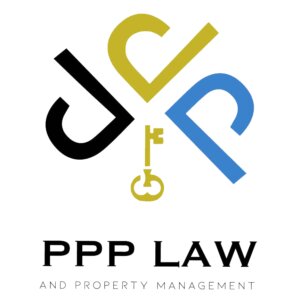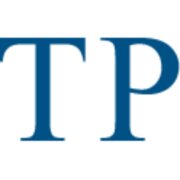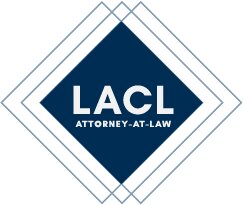Best Banking & Finance Lawyers in Huai Khwang
Share your needs with us, get contacted by law firms.
Free. Takes 2 min.
List of the best lawyers in Huai Khwang, Thailand
Thailand Banking & Finance Legal Articles
Browse our 5 legal articles about Banking & Finance in Thailand written by expert lawyers.
- Thailand Strengthens Anti-Money Laundering Laws with New Amendments
- Thailand has taken an important step in the fight against financial crime. On the approval of two new legislative amendments aimed at strengthening its anti-money laundering (AML) laws. On February 25, 2025, the Thai cabinet, led by Prime Minister Paetongtarn Shinawatra, approved amendments of the Anti-Money Laundering Act. These new... Read more →
- Steps to Open a Bank Account in Thailand as a Foreigner
- Opening a bank account in Thailand as a foreigner may streamline financial activities and make life more comfortable. Whether you’re planning a long-term stay in the country, establishing a company, or just seeking a sensible method to manage your finances, taking note of the setup procedure may save time and... Read more →
- Thai Legal Framework for Cryptocurrencies
- Technology, investment, and money have all been fundamentally altered by cryptocurrencies. Countries all throughout the globe struggle to design legal regimes that safeguard consumers while fostering innovation as these digital assets develop. Thailand distinguishes itself in this sense as it has one of the most thorough regulatory frameworks regarding cryptocurrencies... Read more →
About Banking & Finance Law in Huai Khwang, Thailand
Banking and finance law in Huai Khwang, a vibrant district within Bangkok, plays a crucial role in regulating financial transactions, banking practices, lending, and monetary dealings. As a commercial and residential area, Huai Khwang attracts a wide range of businesses, residents, and foreign investors, each interacting with banks, lending institutions, and financial service providers. Regulations are designed to promote economic stability, ensure the integrity of financial institutions, protect consumers, and support legitimate business activities. Whether you are managing personal finances, running a business, or investing in property, understanding the legal landscape can help protect your interests and steer clear of potential disputes.
Why You May Need a Lawyer
There are a number of situations where legal assistance in the area of banking and finance is essential in Huai Khwang. These situations include disputes over loan agreements, mortgage or foreclosure issues, business financing concerns, recovering debts, regulatory compliance matters, investment disputes, and allegations related to fraud or financial mismanagement. Individuals and businesses may also require help negotiating terms with financial institutions, understanding complex contracts, or responding to actions by regulators such as the Bank of Thailand or the Anti-Money Laundering Office. Engaging a qualified local lawyer can provide critical guidance, effective representation, and peace of mind when financial matters become complex or contentious.
Local Laws Overview
The banking and finance sector in Huai Khwang falls under both national laws and local regulations. The Bank of Thailand governs commercial banking activities, while securities, investments, and financial markets are regulated by the Securities and Exchange Commission. Key laws include the Financial Institutions Business Act, the Payment Systems Act, the Civil and Commercial Code (for contracts and debt), and Anti-Money Laundering statutes. There are also specific rules on foreign currency transactions, collateral requirements, and consumer protection. Local financial institutions often implement additional policies to comply with national directives, meaning both borrowers and investors must keep up to date with changing requirements to avoid penalties or disputes.
Frequently Asked Questions
Is it legal for foreigners to open a bank account in Huai Khwang?
Yes, foreigners can open bank accounts, but they will need to provide valid identification and proof of address in Thailand. Some banks may have additional requirements for non-residents.
How can I resolve a dispute with a bank over loan terms?
You can start by negotiating directly with the bank or using their internal dispute resolution process. If issues persist, you may seek mediation through the Bank of Thailand or take legal action with help from a local lawyer.
What protections exist for consumers using financial services?
Consumers are protected under Thai law against unfair banking practices, deceptive advertising, and overcharging. In case of disputes, complaints can be made to the Consumer Protection Board or relevant regulatory bodies.
Can a Thai bank freeze my account without warning?
Generally, accounts can only be frozen with a valid legal reason, such as suspected fraud, overdrawn balances, or a court order. Customers should be notified of such actions unless there is an ongoing criminal investigation that requires confidentiality.
What should I do if I am a victim of bank fraud?
Contact your bank immediately to report the incident, preserve any evidence, and then file a report with the local police and, if needed, the Anti-Money Laundering Office. A lawyer can assist with both criminal and civil claims.
How are loans typically secured in Thailand?
Loans are often secured with collateral, such as property or vehicles. Loan agreements should clearly state the terms of collateral, interest rates, and obligations for both lender and borrower.
Are there limits on currency exchange when transferring money in or out of Thailand?
Thailand imposes reporting requirements and certain restrictions on large foreign currency transactions. Banks may ask for documentation regarding the source and purpose of funds being transferred.
What is the process for business financing in Huai Khwang?
Businesses must submit detailed financial records, business plans, and collateral documents to apply for financing. Local laws require transparency and compliance with anti-money laundering regulations during the process.
What happens if I default on a mortgage in Thailand?
If you default, the lender may pursue a foreclosure process as allowed by local law. Defaulters typically receive notices and opportunities to resolve the debt before foreclosure proceedings begin.
Where can I get government help for financial disputes?
You can approach the Bank of Thailand's Financial Consumer Protection Center, the Office of the Consumer Protection Board, or seek legal aid at district legal assistance offices for help with financial disputes.
Additional Resources
- Bank of Thailand - Oversees banking regulations, consumer protection, and financial stability. - Securities and Exchange Commission - Regulates investment markets and provides guidance on securities. - Anti-Money Laundering Office (AMLO) - Handles financial crimes, fraud, and money laundering cases. - Office of the Consumer Protection Board - Assists with consumer-related financial complaints. - Local Legal Aid Centers - Offer support for those needing legal advice on banking and finance issues. - Huai Khwang District Office - Provides guidance on local legal processes and connects individuals with appropriate agencies.
Next Steps
If you require legal assistance regarding a banking or finance issue in Huai Khwang, begin by documenting all relevant details and gathering any written agreements, communications, and account statements. Consider contacting your bank or financial institution for clarification or to initiate an informal resolution. If the matter is unresolved or involves complex legal questions, consult with a licensed lawyer who specializes in banking and finance law in Thailand. A qualified legal professional can evaluate your situation, advise you on your rights, and represent your interests with banks, regulators, or in court proceedings as necessary. Do not delay seeking help, especially if financial loss, legal action, or criminal allegations are involved. Early legal intervention can make a substantial difference in the outcome of your case.
Lawzana helps you find the best lawyers and law firms in Huai Khwang through a curated and pre-screened list of qualified legal professionals. Our platform offers rankings and detailed profiles of attorneys and law firms, allowing you to compare based on practice areas, including Banking & Finance, experience, and client feedback.
Each profile includes a description of the firm's areas of practice, client reviews, team members and partners, year of establishment, spoken languages, office locations, contact information, social media presence, and any published articles or resources. Most firms on our platform speak English and are experienced in both local and international legal matters.
Get a quote from top-rated law firms in Huai Khwang, Thailand — quickly, securely, and without unnecessary hassle.
Disclaimer:
The information provided on this page is for general informational purposes only and does not constitute legal advice. While we strive to ensure the accuracy and relevance of the content, legal information may change over time, and interpretations of the law can vary. You should always consult with a qualified legal professional for advice specific to your situation.
We disclaim all liability for actions taken or not taken based on the content of this page. If you believe any information is incorrect or outdated, please contact us, and we will review and update it where appropriate.
Browse banking & finance law firms by service in Huai Khwang, Thailand
Huai Khwang, Thailand Attorneys in related practice areas.













